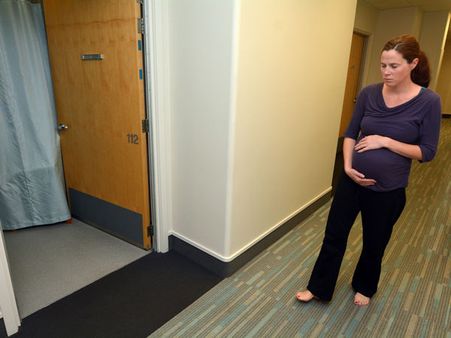Just In
- 3 hrs ago

- 4 hrs ago

- 9 hrs ago

- 12 hrs ago

Don't Miss
- Finance
 1:4 Bonus Shares, Rs 7 Dividend: Big Update Announced; Buy The FMCG Stock?
1:4 Bonus Shares, Rs 7 Dividend: Big Update Announced; Buy The FMCG Stock? - Sports
 Who Won Yesterday's IPL Match 33? PBKS vs MI, IPL 2024 on April 17: Mumbai Indians Escape Last-Ditched Fight by Punjab Kings To Win
Who Won Yesterday's IPL Match 33? PBKS vs MI, IPL 2024 on April 17: Mumbai Indians Escape Last-Ditched Fight by Punjab Kings To Win - Movies
 Do Aur Do Pyaar OTT Release Date & Platform: When & Where To Watch Vidya Balan’s Film After Theatrical Run?
Do Aur Do Pyaar OTT Release Date & Platform: When & Where To Watch Vidya Balan’s Film After Theatrical Run? - News
 BRS Chief K Chandrasekhar Rao Slams BJP, Says K Kavitha's Arrest Is Vendetta Politics
BRS Chief K Chandrasekhar Rao Slams BJP, Says K Kavitha's Arrest Is Vendetta Politics - Automobiles
 Aprilia RS 457 Accessories: A Detailed Look At The Prices
Aprilia RS 457 Accessories: A Detailed Look At The Prices - Education
 Karnataka SSLC Result 2024 Soon, Know How to Check Through Website, SMS and Digilocker
Karnataka SSLC Result 2024 Soon, Know How to Check Through Website, SMS and Digilocker - Technology
 Nothing Ear, Ear a With ANC, Up to 42.5 Hours of Battery Launched; Check Price and Availability
Nothing Ear, Ear a With ANC, Up to 42.5 Hours of Battery Launched; Check Price and Availability - Travel
Telangana's Waterfall: A Serene Escape Into Nature's Marvels
8 Vital Causes of Slow Labour
Gywneth Paltrow was in labour for 40 hours before she opted to have a c-section. Kate Winslet was in labour for a whole day before the doctors decided to have a surgical delivery. Such stories of slow labour can be haunting for an expectant mother who is due to deliver in some time. There are specific causes of slow labour. So put facts before fear when it comes to this issue.
Also, a slow labour will not always lead to a c-section. So, there is no need to lose heart. You can have slow labour for a variety of causes. If it is your first baby, then your labour will move much slower in any case. A normal labour lasts for 6 to 10 hours. If you are past 10 hours already and no signs of the baby yet, then you are having a slow labour.
10 WAYS TO SPEED UP LABOUR PAIN
Also, if you are already having contractions for 5-6 hours and neither your water has burst nor have you dilated enough, then it is a sign that your labour is slow. The strength of your contractions also determine if labour is going to be slow.
Here are the eight most vital reasons for which labour is often slow.

Weak Contractions
If your contractions are weak or infrequent, then labour tends to be slow and drag on forever. In such cases, some steps to speed up the contractions have to be taken.

Full Bladder
When you have full bladder, then your contractions don't come on very strongly. That is why; you must pass urine very frequently when you are in labour.

Wrong Position
If you keep lying flat on your back, then your labour will not move speedily. You must walk around, squat and try out the pre-labour exercises that are given to you.

Baby In High Position
Sometimes, the baby's head does not drop into your cervix and the labour begins before that. In such cases, the labour is slow and stretches for long periods of time.

Non-Dilation Of Cervix
Some women have narrow cervix that do not open up enough to let the baby drop into the uterine passage. In such cases, labour goes on for hours and you might need a c-section to deliver the baby.

No Water Burst
When the water bursts, your contractions will come faster and and stronger. But if you are in labour for 3-4 hours and your water still hasn't burst, then your labour is slow.

Baby Turns Backwards
Sometimes, the baby can turn and change its position at the last minute. If the baby's head is not down or the baby turns towards the back, then labour is difficult and slow.

Epidural
An epidural is extremely tricky in some cases. While it manages the pain, it might also slow down your labour considerably.
-
 pregnancy parentingFrom Contractions To Water Breaking: Knowing When It's Time For The Hospital During Pregnancy
pregnancy parentingFrom Contractions To Water Breaking: Knowing When It's Time For The Hospital During Pregnancy -
 pregnancy parentingMyths vs Facts: You Can Induce Labour By Drinking Castor Oil
pregnancy parentingMyths vs Facts: You Can Induce Labour By Drinking Castor Oil -
 prenatal6 Signs You Are Nearing Labour: What To Do
prenatal6 Signs You Are Nearing Labour: What To Do -
 basicsWhat Are The Three Stages Of Labour? Is There A Difference Between A Caesarean & Normal Delivery?
basicsWhat Are The Three Stages Of Labour? Is There A Difference Between A Caesarean & Normal Delivery? -
 prenatalWhat Is Braxton-Hicks Contractions Or False Labour Pain? Causes, Symptoms And Treatments
prenatalWhat Is Braxton-Hicks Contractions Or False Labour Pain? Causes, Symptoms And Treatments -
 prenatalBirthing Ball For Pregnant Women: Benefits, How To Use, Exercises And More
prenatalBirthing Ball For Pregnant Women: Benefits, How To Use, Exercises And More -
 basicsSexual Intercourse During Pregnancy: Benefits, Complications And Sex For Induction Of Labour
basicsSexual Intercourse During Pregnancy: Benefits, Complications And Sex For Induction Of Labour -
 lifeHappy International Labour Day 2022: Wishes, Quotes, Messages, WhatsApp Status
lifeHappy International Labour Day 2022: Wishes, Quotes, Messages, WhatsApp Status -
 prenatalWhat Does Pitocin Do In Labour?
prenatalWhat Does Pitocin Do In Labour? -
 prenatalThe Importance Of Deep Breathing Exercise During Pregnancy
prenatalThe Importance Of Deep Breathing Exercise During Pregnancy -
 basicsC-section Versus Normal Delivery: Which Is Safe?
basicsC-section Versus Normal Delivery: Which Is Safe? -
 wellnessWays To Tighten Vagina Naturally
wellnessWays To Tighten Vagina Naturally


 Click it and Unblock the Notifications
Click it and Unblock the Notifications



